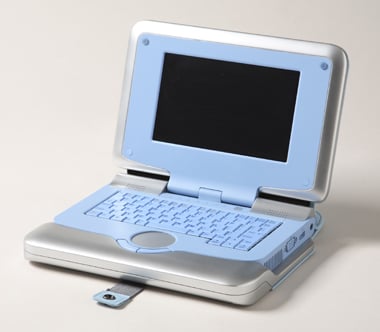A BoP strategy for the PC?
There's something endearing and noble about a company (especially a corporation) trying to serve the poor and bridge the Digital Divide. Something that can make you forget that, as John Mclane said, "Its always about the money." Of course, it is unwise to do so. That really explains the bad blood between Intel and Nicholas Negoroponte's OLPC (One Laptop Per Child) project.
Why is Intel so interested in fighting on what is perceived (at least) to be a socially-responsible project? A few years ago, Prof. C.K. Prahlad's book "Fortune at the Bottom of the Pyramid", explained and gave examples of how serving the poor could lead to spectacular profits especially for large firms that could reap economies of scale. The notion is that (if I remember correctly) the poor care about and want many products. Some of these can be easily provided by large firms though they may need to be modify their current products to meet these needs (pricing, packaging, and sometimes the product itself.) Even if unit margins are low, thanks to the volume of demand (the bottom of the pyramid is bigger than the top) spectacular profits are possible.
Put in this framework, its easy to understand why Intel is willing to fight so hard for this market. Even if margins are low, the potential market size is huge. Furthermore, Intel's bread and butter market is mature. They've been trying to move up the chain in the conventional PC/laptop market, but haven't really enjoyed great success. Could this be the growth (the next billion PCs) that Intel needs?
 | VS |  |
Why is Intel so interested in fighting on what is perceived (at least) to be a socially-responsible project? A few years ago, Prof. C.K. Prahlad's book "Fortune at the Bottom of the Pyramid", explained and gave examples of how serving the poor could lead to spectacular profits especially for large firms that could reap economies of scale. The notion is that (if I remember correctly) the poor care about and want many products. Some of these can be easily provided by large firms though they may need to be modify their current products to meet these needs (pricing, packaging, and sometimes the product itself.) Even if unit margins are low, thanks to the volume of demand (the bottom of the pyramid is bigger than the top) spectacular profits are possible.
Put in this framework, its easy to understand why Intel is willing to fight so hard for this market. Even if margins are low, the potential market size is huge. Furthermore, Intel's bread and butter market is mature. They've been trying to move up the chain in the conventional PC/laptop market, but haven't really enjoyed great success. Could this be the growth (the next billion PCs) that Intel needs?
Comments